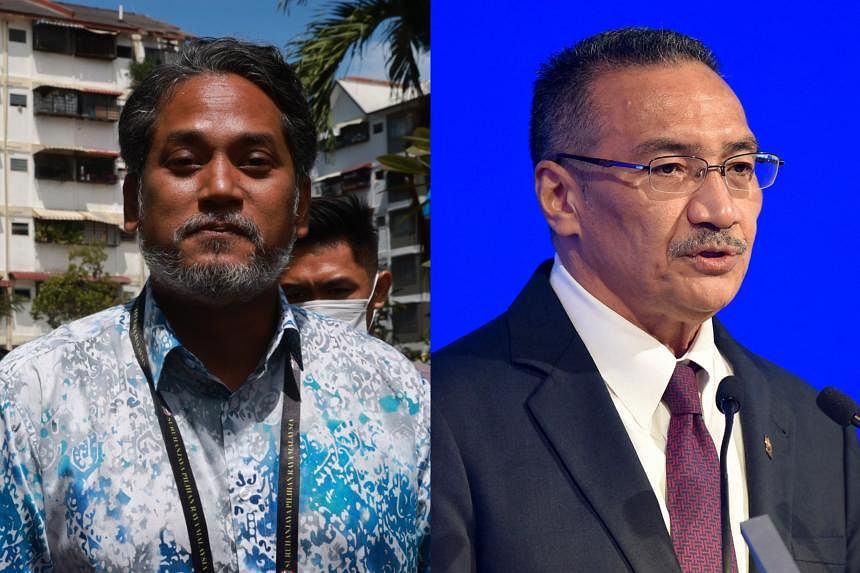RECENT events involving our institutions of governance have reinforced my feeling that Malaysia is in dire straits.
What else can I say when the institution trusted to protect public coffers and the process of governance from unscrupulous machinations itself shows a lack of credibility in the ordinary citizen’s eyes?
Once you have decided this in your mind, though, it is a great relief in a way, because it allows us to usher in new attitudes, new strategies and a new will power to rebuild Malaysia ourselves without interference from those who do not want this country to be shared equally by all races and creeds.
I have written before about building what I call a “parallel Malaysia”. This is a Malaysia defined by ordinary citizens, built by ordinary citizens and nurtured for us ordinary citizens.
By ordinary, I mean citizens who have no honorific titles, no government positions and no great financial benefactor. By ordinary citizens I also mean those who are educated, those who are passionately motivated to work tirelessly, and those who believe in the simple spiritual values of helping others, of engaging with humility with others, and according respect to all.
Building this parallel country begins with a four-phase programme involving a group of ordinary citizens I call Citizens for Social and Religious Harmony, or C-SAR. The first group of 12 individuals would be academics, office bearers in the organisations of the different faiths, and educators. All the different races and faiths will be represented as well as citizens from Sabah and Sarawak.
The primary objective of C-SAR is to promulgate two simple perspectives. The first is that the history, heritage and culture of all races are all equally important and will serve as the foundation of our nation-building.
Secondly, from our various religions and beliefs the group will extract three eternal spiritual values: helping others, humility, and according dignity to all.
These two perspectives will help build a harmonious existence for all.
The C-SAR group will have four phases of development.
The first phase is the publication of two books (or two sets of books). The first will document the histories of all our peoples of all races and of all faiths, and how they contribute to nation-building; its title would be A Complementary History of Race, Religion and Cultures Towards Nation-Building.
This is intended to fill the huge gap left by the history taught in our schools currently that is more focused on the involvement of a single race and faith in our nation’s progress.
The second book will contain and expound on the three spiritual values – helping others, humility, and according dignity to all – that will help build a harmonious existence and how they can be used to diffuse any religious conflicts henceforth.
The book will contain scriptural evidence and commentaries by personalities as well as activities that will help in the forging and nurturing of our social wellbeing. The title of this book will be Spiritual Values and Nation-Building.
The second phase will be about talks and workshops to be held with teachers, academics, universities, schools, and private and public sector workers on the ideas introduced in the two books.
C-SAR’s third phase is the implementation of retreats – say four-week camps, for instance – for young people, adults and families that will immerse them in the social activities derived from the two perspectives.
This phase will also see the establishment of an Institute for History, Spirituality and Nation-Building that would serve as the foundation of a school and a university free from the dictates of the present educational infrastructure.
Both the school and the university will have an international accreditation body of educationists and experts who are also imbued with the right spirit of rebuilding society from a global perspective.
This third phase will also initiate an “Anak Angkat” (adoption) programme where all teens will experience living temporarily with families that are not of their race and/or faith.
The fourth and final phase will see the construction of a 500ha holiday resort where true Malaysians can spend a weekend or a month living in a society of real citizens imbued with the spirit of the Rukun Negara, a place where all will play, rest and pray together without the hindrance of politics or narrow-minded ideas about race and religion.
With God’s help, I envision finally a C-SAR-created township of 10,000 Malaysians living, working, praying and learning in an agroservice settlement with a fully sustainable political system, energy resources and food production, as well as a zero tolerance for poverty. This township will serve as a model for other townships of true Malaysian spirit with a global outlook.
American architect and futurist Buckminster Fuller once said that we should not fight a bad idea directly but should instead create and nurture a good idea till the bad idea perishes in irrelevance.
I hope this vision I have is that good idea, and that it will not remain mine alone but will be owned by all citizens who love this country for what it once was and what it could one day be.
To realise this dream of our own Malaysia for our children’s children, we just need to answer this: To do or not to do, that is the question.
Prof Dr Mohd Tajuddin Mohd Rasdi is Professor of Architecture at UCSI University. The views expressed here are entirely the writer’s own.



